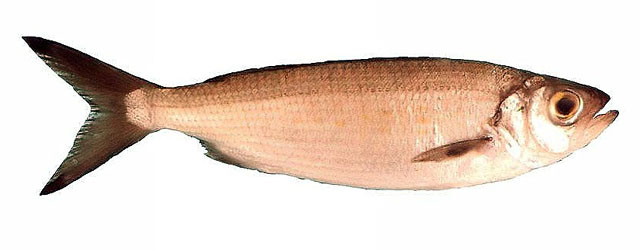| Arripidae (Australian salmon) |
| 41 cm FL (male/unsexed); max.weight: 800.0 g; max. reported age: 7 years |
|
pelagic-neritic; brackish; marine; depth range - 1 m |
| Eastern Indian Ocean: endemic to the southern coasts of Australia. |
|
Dorsal spines (total): 9-9; Dorsal soft rays (total): 16-16; Anal spines: 3-3; Anal soft rays: 10-10; Vertebrae: 25-25. Large eyes, diameter of which about one fifth of the head length. Body scales are slightly rough to touch. Body coloration: green above and silvery below with vertical rows of golden spots on the upper sides, tips of the caudal fin are black. Juveniles have dark golden bars on their sides (Ref. 6390). Length of upper lobe of caudal fin < 29.9% SL (Ref. 9701). |
| Usually found inshore in bays and estuaries over seagrass beds or near areas of seaweed (e.g. kelp), on rocky reefs, and along ocean beaches. Juveniles are found in inshore coastal waters, bays and inlets (Ref. 6390). Feed on small fish and prawns (Ref. 27946). |
|
Not Evaluated (N.E.) Ref. (130435)
|
| harmless |
Source and more info: www.fishbase.org. For personal, classroom, and other internal use only. Not for publication.
